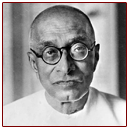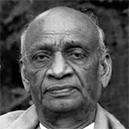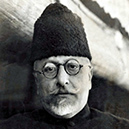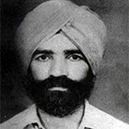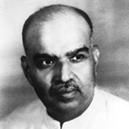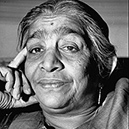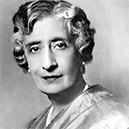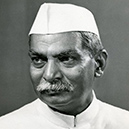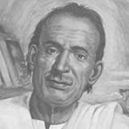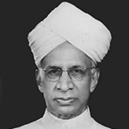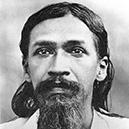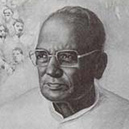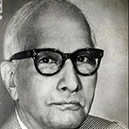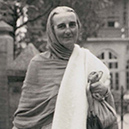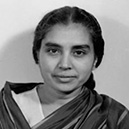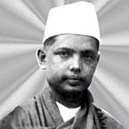to mahatma gandhi
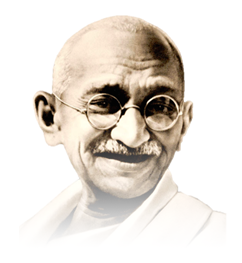
Remembering
Be the change that you wish to see in this world.
Pakistan

Khan Abdul Gafar Khan
The only ray of light
He was the only ray of light to help us through these darkest days.

M. A. Jinnah
A noble death
I associate myself with the tributes that have been paid to this great man.
He died in the discharge of the duty in which he believed. His tragic death, however much we may deplore it and however much we may condemn the murderer, was a noble death, for he died in the discharge of his duty.

Liaquat Ali Khan
Memorable efforts for Communal Harmony
His removal from the stage of Indian politics at this juncture is an irreparable loss.
His great effort for the restoration of communal harmony will be remembered with gratitude by all lovers of peace and goodwill. We earnestly hope that his efforts for communal harmony which he had foremost in his heart just before his tragic death will be crowned with success.

Pakistan Times, Lahore
Timeless symbol of love and rectitude
Mahatma Gandhi is dead. The world has been deprived of the sight and sound of his frail body and aged voice - the body and voice that had in the last few months almost lost, for a large section of mankind, their personal and ephemeral character and become timeless symbols of compassionate love and fearless attitude. In his last momentous days Gandhi, the politician, give place to the infinitely greater Gandhi, the man.
The best love and most venerated political leader and moral evangelist of a near subcontinent, and idol of millions, has been publicly murdered. In India and Pakistan today every heart and every conscience should be search to assess how far every heart and every conscience is answerable for this most fearful of tragedies. The people of India and indirectly the people of Pakistan for he was trying to befriend both, have added their other losses. The most grievous loss of all - the loss of Gandhiji.
United Kingdom (UK)

His Majesty the King
Irreparable loss
The Queen and I are deeply shocked by the death of Mr. Gandhi. Will you please convey to the people of India our sincere sympathy in the irreparable loss which they, and indeed mankind, have suffered.

Lord Mountbatten
Life of love and truth
Gandhiji's death is truly a loss to mankind which sorely needs the living light of those ideals of love and tolerance for which he strove and died. In her hour of deep sorrow India is proud to have given to the world a man of his imperishable renown and is confident that his example will be a source of inspiration and strength in the fulfillment of her destiny...
India, indeed the world, will not see the like of him again, perhaps, for centuries.
Our one consolation in this hour of unparalleled grief is that his life of truth, tolerance and love towards his fellows may inspire our troubled world to save itself by following his noble example.

Countess Mountbatten
An international tragedy
The death of Mahatma Gandhi is not only a national disaster, but an international tragedy. My heart is so full that I am unable to find words. Gandhiji's death is world loss. He was a great leader. The utmost we can do now is to try and carry on and live up to the principles which Gandhiji taught us.

George Bernard Shaw
Dangerous to be good
It shows how dangerous it is to be too good.

Horace Alexander
Friend of the English
The long struggle against British power never led to alienation from the English people. Not only did he count several viceroys, and other British rulers as his friends, but even among those who are his close intimates, among those who ran to him with all their problems and difficulties, among those who love to call him 'Bapu', not a few were Englishmen and women.

Mr. Kingsley Martin,Editor, New Statesman & Nation, London.
His brave campaign
The Mahatma did not teach a soft doctrine of complacence but he did, like Jesus Christ, convince millions of people that the only alternative to an endless succession of hates and wars was to realise that truth and love were the supreme methods of warfare, for the only true victory is to turn your enemy into your friend...I was present when Mahatma Gandhi held his prayer meeting at Mehrauli Tomb, as part of his brave and beneficent campaign to end hatred and bitterness between Hindus and Muslims. People sometimes speak as if the western world is incapable of appreciation of such a life as Gandhi's...But they sometimes forget what Gandhi always remembered that Christ himself taught a doctrine that was closely akin to ahimsa...

The News Chronicle, London.
A high religious tragedy
The darkness which is over the earth today is but the deepening of a shadow which has fallen across all generations of men. The murder of Mahatma Gandhi is something far more terrible than any political crime. It belongs to the supernatural realm of high religious tragedy.
The hand that killed the Mahatma is the same hand that nailed the Cross. It is the hand that fired the faggots. It is the hand that through the ages has been growing ever more mighty in war and less sure in the pursuit of peace. It is your hand and mine....
Yet after the work of the Mahatma, it is not too presumptuous to hope for a miracle. It may be that the death of this leader, who was held in so much reverence by so many millions, will raise men to heights they have not hitherto attained. It may be that love against which the gun has no power will evoke out of this great tragedy the beginnings of peace and unity for India.
Now in the pain of Mahatma Gandhi's death it is possible to realise how lasting and how strong is the faith which he preached. Now we can see that the light which was kindled in the East has not been put out, but is made one with the white radiance of eternity.

The Times, London.
Mahatma Gandhi will rightly take his place alone in Indian history as a leader who embodied far more than his own religious community's ideas of human brotherhood, of respect for individual conscience, and of supreme self-sacrifice in support of right.

The Manchester Guardian.
To the West he is, above all, the man who revived and refreshed the meaning and value of religion.

The Daily Worker, London.
Mahatma Gandhi has lost his life truly as a martyr in the fight against communal conflict...The solemnity of the moment calls for renewed efforts to find the path of co-operation and democratic unity.

The Daily Herald, London.
The assassination is not only a calamity for India but for the world. Mahatma Gandhi was one of the great teachers of mankind.

The DailyTelegraph, London
He gave to Indians a new sense of power and responsibility and the value of political agitation.
EUROPE

Belgium
Frans Van Cauwelaer, President of the Belgian Chamber of Deputies
His death has plunged in a personal mourning all men who have not ceased to believe in the power of the spirit and the radiance of godliness. Let this tragic death continue to serve his noble dream of human fraternity.

Czechoslovakia
Dr. Edward Benes
The representative of your independence and freedom.

France
A Resolution of the Council of Republic of France
May the memory of the Apostle of India inspire men of all races in their march towards liberty and justice and may the idea of mutual understanding prevail over violence and fatalism.

Germany
Dr. Kurt Schumacher, GSD Leader
Mr. Gandhi will on with us as an example of humanity...his influence will be stronger than ever before...

Italy
His Holiness Pope Pius XII, Vatican City
The great man was the spiritual leader of millions of Indians and had always struggled for peace.

Switzerland President
Mahatma Gandhi exceptionally personified the Prince of Peace whose loss affects all humanity.
United States of America (USA)

Albert Einstein
Everyone concerned in the better future of mankind must be deeply moved by the tragic death of Mahatma Gandhi. He died as the victim of his own principles, the principle of non-violence. He died because in time of disorder and general irritation in his country, he refused armed protection for himself. It was his unshakable belief that the use of force is an evil in itself, that therefore it must be avoided by those who are striving for supreme justice to his belief. With his belief in his heart and mind, he has led a great nation on to its liberation. He has demonstrated that a powerful human following can be assembled no only through the cunning game of the usual political manoeuvres and trickeries but through the cogent example of morally superior conduct of life.
The admiration for Mahatma Gandhi in all countries of the world rests on recognition, mostly sub-conscious, recognition of the fact that in our time of utter moral decadence, he was the only statesman to stand for a higher level of human relationship in political sphere. This level we must, with all our forces, attempt to reach. We must learn the difficult lesson that an endurable future of humanity will be possible only if, also in international relations, decisions are based on law and justice and not on self-righteous power, as they have been upto now.

President Truman
Gandhi was great Indian nationalist, but at the same time he was a leader of international stature. His teachings and actions have left a deep impression on millions of people. As a teacher and leader, his influence made itself felt not only in India, but everywhere in the world and his death brings great sorrow to all peace loving people. Another giant among men has fallen in the cause of brotherhood and peace. I know that the people of Asia will be inspired by his tragic death to strive with increased determination to achieve the goals of cooperation and mutual trust for which the Mahatma has now given his life.

Eleanor Roosevelt
There is no doubt Gandhi had great spiritual qualities and the one only hope, even though he is not with his people, is that his influence had much of value to give to the rest of the world and one hopes the very violence of his death will turn people away from violence.

General Dogulas MacArthur,
The only ray of light
Nothing more revolting has occurred in history of modern world than the senseless assassination of this venerable man. That he should die by violence is one of those bitter anachronisms that seems to refute all logic.
In the evolution of civilization, if it is to survive, all men can not fail eventually to adopt his belief that the process of mass application of force to resolve contentious issues is fundamentally not only wrong but contains within itself the germs of self-destruction.
Gandhiji, however, was one of those prophets who lived far ahead of the times.

Pearl S. Buck
"He was right, he knew he was right, we all knew he was right. The man who killed him knew he was right. However long the follies of the violent continue, they but prove that Gandhi was right. 'Resist to the very end', he said, 'but without violence' Of violence the world is sick. Oh, India, dare to be worthy of your Gandhi."

Dr.Martin Luther King, Jr.
"Gandhi was probably the first person in history to lift the love ethic of Jesus above mere interaction between individuals to a powerful and effective social force on a large scale. The intellectual and moral satisfaction that I failed to gain from the utilitarianism of Bentham and Mill, the revolutionary methods of Marx and Lenin, the social contract theory of Hobbes, the 'back to nature' optimism of Rousseau, and the superman philosophy of Nietzsche, I found in the non-violent resistance philosophy of Gandhi."
"If humanity is to progress, Gandhi is inescapable. He lived, thought, and acted, inspired by the vision of humanity evolving toward a world of peace and harmony. We may ignore him at our own risk."
"Gandhi resisted evil with as much vigor and power as the violent resister, but he resisted with love instead of hate. True pacifism is not unrealistic submission to evil power. It is rather a courageous confrontation of evil by the power of love."
Others On Gandhi

Arnold Zweig
"Then rose the star of Gandhi. He showed that a doctrine of nonviolence was possible."

Haile Selassie I.
"Mahatma Gandhi will always be remembered as long as free men and those who love freedom and justice live."
"The name Mahatma Gandhi has become synonymous with right and justice; towards this end it has become an inspiration to millions of oppressed people and has kindled the light of liberty."
"Today, when world peace is threatened with atomic and nuclear weapons capable of annihilating the human race, Mahatma Gandhi's teachings of love and truth and of respect for others' rights have become even more meaningful than at any other time."

Ho Chi Minh
"I and others may be revolutionaries but we are disciples of Mahatma Gandhi, directly or indirectly. Nothing more, nothing less."

Rabindranath Tagore
"Mahatma Gandhi came and stood at the door of India's destitute millions, clad as one of themselves, speaking to them in their own language...who else has so unreservedly accepted the vast masses of the Indian people as his flesh and blood...Truth awakened Truth."

Romain Rolland
"Gandhi is not only for India a hero of national history, whose legendary memory will be enshrined in the millennial epoch.Gandhi has renewed, for all the peoples of the West, the message of their Christ, forgotten or betrayed."
"For many, he was like a return of Christ. For others, for independent thinkers, Gandhi was a new incarnation of Jean-Jaques Rosseau and of Tolstoy, denouncing the illusions and the crimes of civilization, and preaching to men the return to nature, to the simple life, to health."
"I have seen here, in Switzerland, the pious love that he [Gandhi] inspired in humble peasants of the country side and the mountains.”

U Thant
"Many of his principles have universal application and eternal validity, and I hope the passing years will show that his faith in the efficacy of nonviolent pressure as an agent for peaceful change is as justified today all over the world as it was in his time in India."

Werner Heisenberg
"Gandhi's way of thinking can lead directly into the political structure of the future world, in which a nation might be much better protected by not possessing atomic weapons than by having them, or might pursue its own interests much more efficiently by participating in the interests of other nations than by ignoring them. It was the unique example given by Gandhi which demonstrated that the most sincere personal engagement combined with complete renunciation of violence can lead to great political success.We are all indebted to him for this example."

Will Durant
"Not since Buddha has India so revered any man. Not since St. Francis of Assissi has any life known to history been so marked by gentleness, disinterestedness, simplicity of soul and forgiveness of enemies. We have the astonishing phenomenon of a revolution led by a saint."

Lord Richard Attenborough
"When asked what attribute he most admired in human nature, Mahatma Gandhi replied, simply and immediately, 'Courage'. 'Nonviolence', he said, 'is not to be used ever as the shield of the coward. It is the weapon of the brave."

HH The Dalai Lama
"I have the greatest admiration and respect for Mahatma Gandhi. He was a great human being with a deep understanding of human nature. He made every effort to encourage the full development of the positive aspects of the human potential and to reduce or restrain the negative. His life has inspired me ever since I was a small boy. Ahimsa or nonviolence is the powerful idea that Mahatma Gandhi made familiar throughout the world. But nonviolence does not mean the mere absence of violence. It is something more positive, more meaningful than that, for it depends wholly on the power of truth. The true expression of nonviolence is compassion. Some people seem to think that compassion is just a passive emotional response instead of a rational stimulus to action. To experience genuine compassion is to develop a feeling of closeness to others combined with a sense of responsibility for their welfare. This develops when we accept that other people are just like ourselves in wanting happiness and not wanting suffering. What is the relevance of nonviolence and compassion to the future of humanity? As Mahatma Gandhi showed by his own example, nonviolence can be implemented not only in politics but also in day-to-day life. That was his great achievement. He showed that nonviolence should be active in helping others. Nonviolence means that if you can help and serve others you should do so. If you cannot, you must at least restrain yourself from harming others. I believe that it is very important that we find positive ways in which children and adults can be educated in the path of compassion, kindness and nonviolence. If we can actively do this I believe we will be fulfilling Mahatma Gandhi's legacy to us. It is my prayer that, as we enter this new century, nonviolence and dialogue will increasingly come to govern all human relations."

Louis Fischer
"Just an old man in a loin cloth in distant India. Yet when he died, humanity wept."

Swami Premananda
True to its spiritual heritage, India has contributed in the personality of Mahatma Gandhi the greatest truth, the truth of God. No other nation in this century has contributed anything of such eternal value. But India has. And this I must say; that for another thousand years the world must look towards the idealism of Mahatma Gandhi. Mahatma Gandhi was an avatar. I don't mean a mythological figure or a personality. Who is an avatar? one who manifests in his life to the utmost the attributes of God on earth; he is an avatar. Who has done this in this twentieth century of ours? Mahatma Gandhi. He is an avatar. India has contributed something to the United States: idealism, the truth by living example rather than theory, not in words, not not from the pulpit, but from among the people. Not in words but in action. India has contributed Mahatma Gandhi's life, his ideals. There is no other way for mankind to establish the kingdom of God on earth, no other way except the path which Mahatma Gandhi has revealed unto us."
